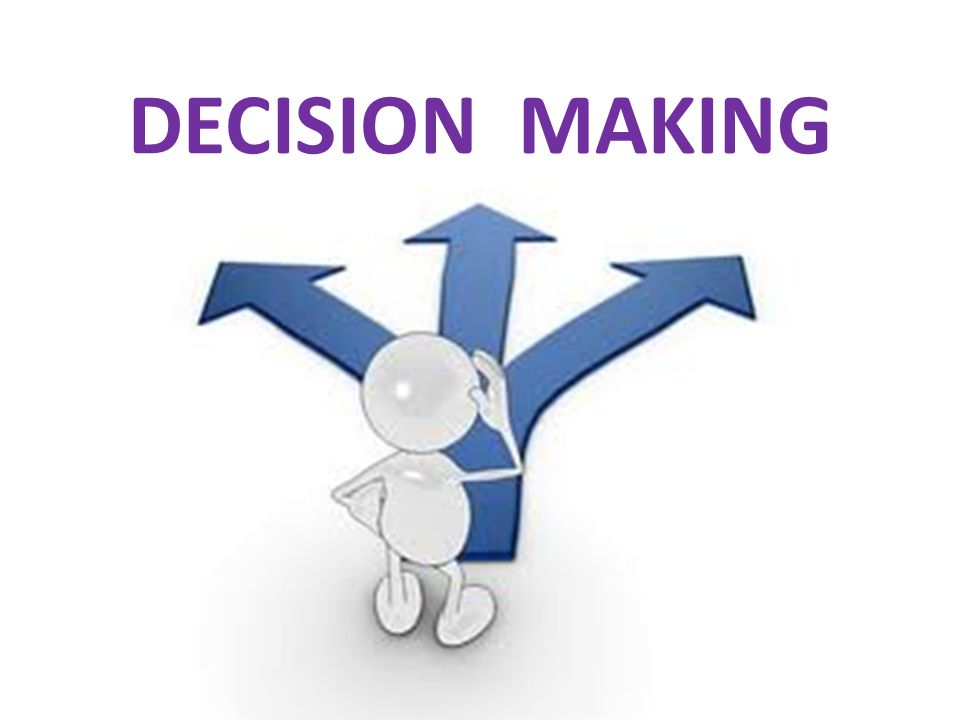The Process of Decision Making
Good decision making is essential to your success. Throughout life you make choices. You choose a college to go to, a neighborhood to live in, people to work in your family business, and on and on. Those choices all have their own set of implications and consequences. Mark Twain said, “Good decisions come from experience. Experience comes from making bad decisions.” While there may be a little truth in that, experience can also teach us bad habits in our approach to making decisions.
In this series we will introduce you to a disciplined approach to the decision-making process that’ll help improve your outcomes and maybe even take a little of the anxiety off the table. In their book Smart Choices, John Hammond, Ralph Keeney, and Howard Raiffa identify six criteria to follow when approaching the decision-making process.
Six Criteria to Follow When Making Decisions
Focus on what’s important.
Ensure the process itself is sound and reliable.
Blend analytical with intuitive thought processes.
Resolve the dilemma at hand with only as much information and analysis as is necessary.
Gather pertinent information and informed opinions. (emphasis added)
Make sure the process is user friendly and adaptable to change.
Managing Risk
What’s at risk is nothing short of losing your business. We operate in a fast-paced environment where adaptability to change is essential for survival. We no longer have the luxury of lazy thinking. We can not take a casual approach to the market around us.
I recently listened to Bruce Turkel who authored All About Them: Growing Your Business by Focusing on Others. He illustrated the point well.
“In years gone by, if you had a bad experience at a hotel or restaurant you might write a letter and send it to the home office or general manager if you could find out who that was. One to two months later you might get a response and, if you did, it was generally no more than a conciliatory apology with a promise to do better. Today, you take a picture of your food or describe your bad experience, post it on facebook, Instagram, yelp and twitter and in the time it takes you to finish your meal or summon an UBER the world can know how terrible you think this business is.” - Bruce Turkel
Is it fair? Perhaps not but it is the new reality. In light of that, do you really want to manage the risks in your business with a casual approach to decision-making or do you want to apply some rigor to it?
Decision-making is a process. In the weeks ahead we will explore elements of the process for you here. It is something you can learn and develop your skills around. Smart decision makers are proactive and reframe external forces they have no control over into opportunities they can harness. They share some characteristics you’ll readily recognize and that you can emulate. They:
Are proactive and don’t procrastinate. The first step is getting started.
Focus on what is important and don’t let “shiny objects” distract them.
Plan, plan, plan. They proactively develop a plan of attack. This is different from suffering with the paralysis of analysis.
Keep it simple. Occam’s Razor applies here.
Collaborate to get “unstuck”. Someone else’s perspective may be just what you need.
Use advisers judiciously. Here avoid sycophants.
Check their ego at the door and question their answers from time to time. Reflection is powerful and does not slow you down. Slow is smooth, smooth is fast. It is a paradox with broad application.
You might find the approach less distasteful once you realize decision making is a process that can be learned and that it is essential to growing your business. The degree to which you develop your skill around the process is the degree to which you can better manage the risk associated with making bad decisions and get closer to the dreams you have for you and your family.
Happy decision-making! Check back in two weeks for the next installment in the series. You won’t be disappointed.
The PathFinder team of business consultants has decades of experience helping family businesses in Tampa and the greater Florida area. If you need some advice on important decisions for your business, do not hesitate to reach out to us for a free consultation to see if we can be of assistance.

